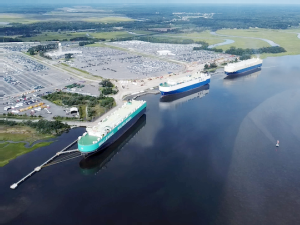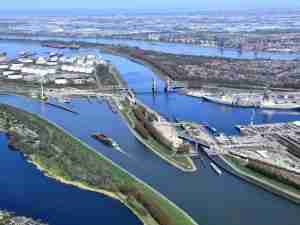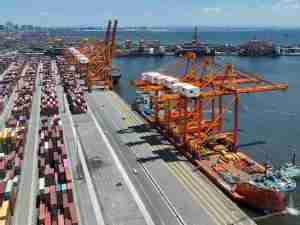AgTC Exec. Director Statement on ILWU PMA Agreement
posted by AJOT | Feb 23 2015 at 05:59 AM | Ports & Terminals
Statement of Peter Friedmann, Executive Director of the Agriculture Transportation Coalition, upon news that agreement has been reached between the PMA and ILWU on a new contract:
“We are extremely pleased with the news that the West Coast port labor dispute is on the verge of ending. We know that even upon ratification, clearing up the congestion will take months. And ultimately, if US agriculture is to recover, we will need to see West Coast ports become more efficient, more productive than they were before the contract expired and the disruption initiated.
US agriculture has taken a beating these past 10 months, as West Coast port disruption has denied many agriculture exporters access to foreign markets. The delays imposed by congested, understaffed and under automated ports have created barriers to our exports. Perishables have been knocked out of markets, and our customers overseas have been forced to find other, non-US, sources for their meat, fruit, hay, cotton, rice, nuts, french fries, lumber, and so much more.
There is nothing that we produce in agriculture here in the US, that cannot be sourced elsewhere in the world. If we don’t supply dependably and affordably, we lose that business. Twelve years ago the West Coast ports were shut down and foreign buyers shifted purchases to some of our foreign competitors. In some cases, twelve years later, they still haven’t come back to the US ag producers
The Agriculture Transportation will continue to push the PMA and the ILWU to improve West Coast port productivity and efficiency, not just restore ports to pre-contract dispute levels, but to levels that will make our ports, and products our AgTC members ship through them, competitive with the best ports in the world. We are a long ways from that.
US agriculture can recover, but only with a collective effort. US agriculture requires the sincere commitment of both the PMA and ILWU, as measured by work ethic, enhanced pace of terminal operations, introduction of automation such as exists at ports throughout the developed world, and elimination of outdated labor and management practices.
We continue to produce the best quality food, farm and fiber; now we need to show the world that we can deliver - dependably and affordably. That will require willingness by both West Coast port labor and management, to modernize to world class port standards.
We will keep our fingers crossed that both labor and management have learned that their actions will determine if the US will continue to be the world’s leading supplier of agriculture. If they have, then they can look forward to increasing volumes of cargo crossing West Coast docks.”










